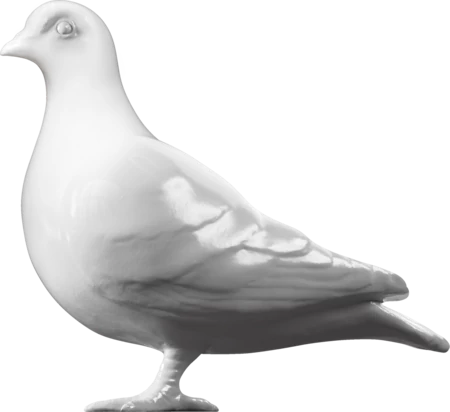Social History — 1904
Mechanical toy sewing machine
This tinplate penny toy was purchased for one penny (1d) from a London street trader on 16th November 1904. It forms part of a large collection of over 1500 penny toys and novelties purchased by the City Director Ernest King between 1893 and 1918.
King purchased his collection from the men, women and children who lined the gutters from St Paul's Cathedral down to Ludgate Hill selling a range of penny toys and novelties from trays hanging from their necks. The most lucrative month for the traders was December, their cheap goods attracting vast crowds of Christmas shoppers causing disruption to the flow of traffic and people through the financial City. Regular traders were joined, at this time, by seasonal traders causing additional congestion. Miniature, mechanical toy models representing new technology and innovations such as this example of a domestic sewing machine, similar to those manufactured by Singer, were particularly popular with buyers.
The majority of tinplate toys were manufacturered in Nuremberg, Bavaria. The main distribution point for imported German toys arriving at London's docks was the Houndstitch area on the edge of the City. Here wholesale warehouses were often established by Bavarian agents working on behalf of companies such as Fischer and Meier the leading manufacturers of tinplate toys.
In his 1897 survey of London’s poor Charles Booth’s identified street sellers, often known as gutter merchants, as being amongst the poorest of the capital’s workers. Classed alongside loafers, criminals and semi-criminals the occasional street sellers lived the ‘life of savages, with vicissitudes of extreme hardship and their only luxury is drink.’ Experiencing ‘an appalling amount of poverty and discomfort’ they were often found to be living in licensed common lodging houses and casual wards.
Tinplate penny toys were particularly popular between the late 1890s and 1914 but with the advent of the First World War trading with Germany largely ceased due to the Enemy Amendment Act of 27 November 1914.
- Category:
- Social History
- Object ID:
- 80.525/1531
- Object name:
- mechanical toy sewing machine
- Object type:
- Artist/Maker:
- —
- Related people:
- Related events:
- Related places:
- Production date:
- 1904
- Material:
tin, paint
- Measurements/duration:
- L 77 mm, W 40 mm, H 50 mm (overall)
- Part of:
- —
- On display:
- —
- Record quality:
- 100%
- Part of this object:
- —
- Owner Status & Credit:
Permanent collection
- Copyright holder:
digital image © London Museum
- Image credit:
- —
- Creative commons usage:
- —
- License this image:
To license this image for commercial use, please contact the London Museum Picture Library.
